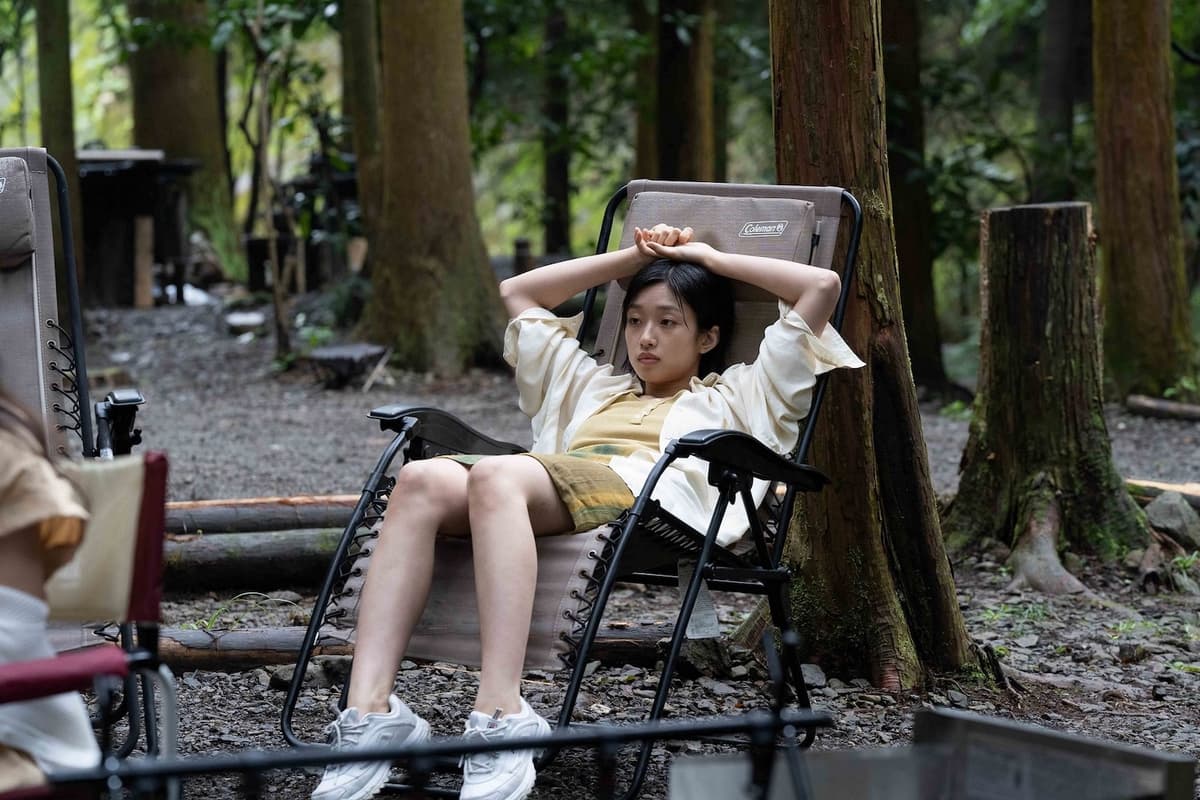Less May Have Been More With Yoko Yamanaka’s ‘Desert of Namibia’
An intimate scope doesn’t preclude an epic treatment, but when miniaturism is one’s subject perhaps a requisite format is the better option.

To paraphrase an old maxim about fat and skinny, there is a shorter movie within Yoko Yamanaka’s “Desert of Namibia” trying to get out.
Not only shorter, but better: Ms. Yamanaka’s film about a 21-year-old woman attempting and largely failing to navigate a world of responsibility clocks in at more than two and a quarter hours. An intimate scope doesn’t preclude an epic treatment, but when miniaturism is one’s subject perhaps a requisite format is the better option. Ms. Yamanaka’s cutting room floor isn’t as cluttered as it could be.
“Desert of Namibia” is Ms. Yamanaka’s second feature, the first being “Amiko” (2017), a coming-of-age tale that garnered significant notice for its then 19-year-old director. That picture was about a high school student, so the new movie bears roughly the same relationship in terms of age difference between protagonist and auteur. That Ms. Yamanaka, who also wrote the script, is now older and wiser can be gleaned from the complicated nature of her lead, the willful and obstreperous Kana (Yumi Kawai). The trouble is how those complications are framed.
Ms. Kawai gives a committed performance in playing a difficult and often unpleasant character. Kana works in a Tokyo salon that specializes in hair removal. Donning a telltale white uniform and safety goggles and adopting a professional demeanor, Kana’s behavior at the jobsite is in dramatic contrast to her dealings with the outside world. She’s got her job down to a science, but its rigors and repetitions do wear a psyche down. Just when is it again, quitting time?
Although the world may be a messy place, it does allow for the casual smoking of cigarettes and flitting between boyfriends, whether it be the lion-maned Honda (the mononymous Kanichiro) or the scruffier Hayashi (Daichi Kaneko). The distinction between the two men is cut-and-dried: Honda is a buttoned-down business type who’s skillful with a stove-top and skillet; Hayashi is a creative whose primary metier is never made clear, though at one point we learn that he’s dabbling in screenwriting.

Honda is unaware of Kana’s relationship with Hayashi. Hayashi, being the freer of the two spirits, is down with polyamory — until he isn’t. An ultimatum is made: Kana must choose a single partner, a decision that is made for her when Honda admits to visiting a prostitute while on a business trip.
Kana is more relieved than angry and promptly moves in with Hayashi, but non-marital bliss proves to be stifling for both of them. Attempts by Hayashi to bring Kana into the fold of friends and family prove frustrating. All and sundry extol her beauty, but no one much cottons up to her. Kana doesn’t seem to care one way or another.
Kana begins to lash out in anger, often engaging in strenuous physical punch-ups with Hayashi. These scenes are as narratively disturbing as they are cinematically vivifying: As actors, Ms. Kawai and Mr. Kaneko underscore the preposterousness of most movie action by demonstrating how ungainly violence truly is.
When Ms. Yamanaka the scriptwriter begins to hint that Kana is suffering from some form of medical malady, Ms. Yamanaka the director loses focus, indulging in meta-textual gambits that are less indicative of Kana’s psychological ennui than an auteurist’s desperation. When naturalism buckles under to symbolism, the results are invariably iffy and often self-aggrandizing.
What do deserts and Namibia have to do with the tale of young Tokyoites and their post-adolescent travails? Namibia’s Etosha National Park has a channel with a livestream of the Okaukuejo Waterhole on which internetters can glimpse the stray ostrich, oryx, and giraffe drinking from its waters. Kana watches the channel when feeling stressed. Ms. Yamanaka employs it as a metaphor for the vagaries of “societal deception.”
Whatever you say, Ms. Yamanaka. In the meantime, take this advice to heart: 90 minutes or bust.

